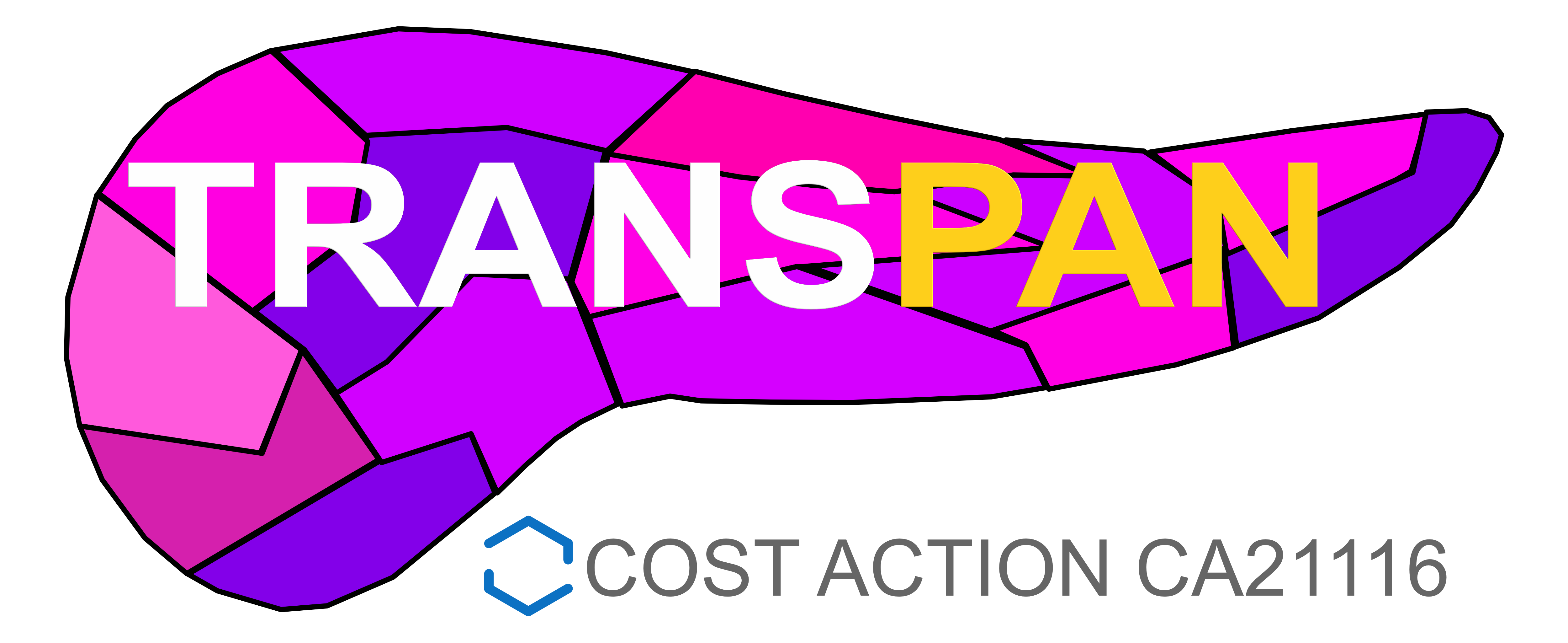Working Group 4
Functional Genomics and Therapy
This WG will functionally validate candidate genetic variants from germline or tumor studies by using cutting-edge approaches such as CRISPR- Cas9 gene editing. On the other hand, it will generate novel approaches such as organoids / zebrafish avatars to implement (chemo)therapeutic strategies based on the patient in an effort to implement personalized medicine for PDAC.

Objectives
-
To link unequivocally genetic variants with an altered gene function or pathogenicity.
-
To establish organoids / zebrafish avatars using xenografts from PDAC patients.
- To select the germline and somatic candidate genetic variants to be functionally investigated.
- To perform gene editing for the selected genetic variants by using CRISPR-Cas9 and reintroducing them in cell cultures.
- To study the alteration of cellular processes and the specific gene function in the transfected cells, comparing the studied genetic variant and their wild-type counterpart.
- To assign pathogenicity to genetic variants if an alteration is detected in previous studies.
- To use organoid / zebrafish xenograft models mimicking the in vivo PDAC tissue to better characterize patients’ response to therapy.
Tasks
Activities
Dedicated WG meetings will take place (1-2 per year). Workshops on the field will be included during meetings. A training school will be committed to the topic of gene editing. Inter-laboratory exchanges in the form of STSMs are also envisioned especially for young researchers. A tight monitoring of the WG activities will be ensured by a strong WG committee.
-
Establish a zebrafish avatar for PDAC patients.
-
Combine multi-omics with organoid / zebrafish avatar data to obtain a patient profile.
-
Establish a model of gene editing for potentially druggable mutations.
-
Establish an exchange of organoid models.
Milestones
Objectives
-
To link unequivocally genetic variants with an altered gene function or pathogenicity.
-
To establish organoids / zebrafish avatars using xenografts from PDAC patients.
Tasks
- To select the germline and somatic candidate genetic variants to be functionally investigated.
- To perform gene editing for the selected genetic variants by using CRISPR-Cas9 and reintroducing them in cell cultures.
- To study the alteration of cellular processes and the specific gene function in the transfected cells, comparing the studied genetic variant and their wild-type counterpart.
- To assign pathogenicity to genetic variants if an alteration is detected in previous studies.
- To use organoid / zebrafish xenograft models mimicking the in vivo PDAC tissue to better characterize patients’ response to therapy.
Activities
Dedicated WG meetings will take place (1-2 per year). Workshops on the field will be included during meetings. A training school will be committed to the topic of gene editing. Inter-laboratory exchanges in the form of STSMs are also envisioned especially for young researchers. A tight monitoring of the WG activities will be ensured by a strong WG committee.
Milestones
-
Establish a zebrafish avatar for PDAC patients.
-
Combine multi-omics with organoid / zebrafish avatar data to obtain a patient profile.
-
Establish a model of gene editing for potentially druggable mutations.
-
Establish an exchange of organoid models.
